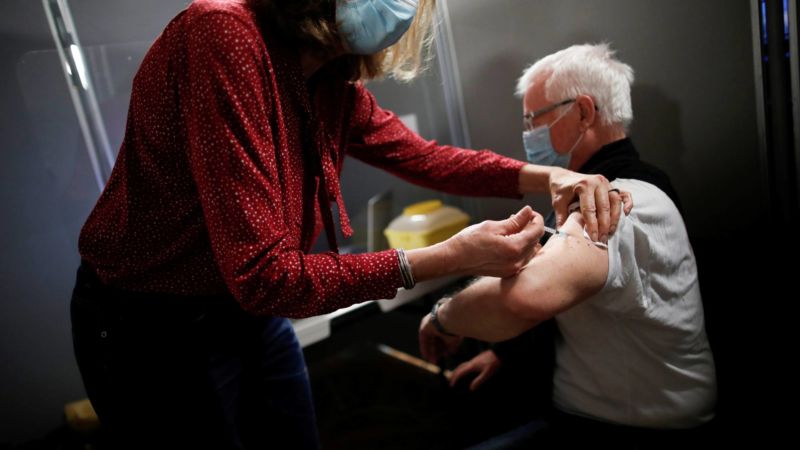More than a year after the pandemic began in the U.S., American employers are faced with a new decision: Whether to mandate employee vaccinations. And like so many decisions that employers make, the answer is not a straight forward.
Case law and agency guidance on vaccine mandates is sparse, but the Equal Employment Opportunity Commission (EEOC) has provided some clarity with respect to compliance under the Americans with Disabilities Act (ADA) and Title VII of the Civil Rights Act of 1964 (Title VII).
According to the EEOC’s December 16, 2020 guidance, employers can lawfully mandate vaccinations with at least two important caveats:
- Accommodation based on disability — Under the ADA, employers must offer reasonable accommodations to qualified employees with a covered disability, unless doing so would create an undue hardship.
- Accommodation based on religion — Under Title VII, employers must offer reasonable accommodations to employees with sincerely held religious beliefs, unless doing so would create an undue hardship.
However, neither of these categories create an absolute license to avoid vaccination. Instead, employers must provide reasonable accommodations if employees request to be excluded from the vaccine mandate. Also, employers and employees should arrive at those accommodations together, through an interactive process.
The EEOC’s guidance makes clear that excluding employees from the workplace is not per se unlawful if an employee refuses vaccination. Moreover, even if an employee requests exemption from a vaccine mandate on the basis of disability or a sincerely held religious belief, if there is no possible reasonable accommodation, exclusion from the workplace is permissible.
Additional guidance from federal agencies has focused on safe workplace reopening practices rather than vaccine policies, and case law has been largely focused on governmental mandates and healthcare employers. Because neither is especially relevant for most American companies, employers are left with a good deal of discretion.
Concerns beyond the law
With decisions about whether to mandate vaccinations largely left to employers, some of the most important questions are more practical than legal. Employers must consider organizational culture, industry nuances, and practices of corporate peers. For example, the Association of Independent Commercial Producers, American Hotel & Lodging Association, and the National Restaurant Association have all issued their own industry-specific guidelines. Employers will need to be sensitive to employee preferences because employers requiring in-office work may lose out to competitors that are continuing with remote work arrangements.
In addition, there are cultural issues outside of the organization to consider. Employees may have doubts about the efficacy or safety of the vaccine. While, 71% of Americans said they are willing to be vaccinated, according to Gallup, that number remains far from 100%. Moreover, employee concerns about safety may be heightened because of the nature of the drug approval process, which has not advanced beyond emergency authorization for any of vaccines currently available in the U.S.
A cultural legacy of racism may also play a part. Historical inequities and abuses around U.S. government-backed medical programs may make some employees of color reluctant to sign on. For example, the notorious 1932 Tuskegee study, where hundreds of African American men were subjected unwittingly to syphilis without medical care, left many in the African American community skeptical about the true intent of government-backed healthcare initiatives.
This context, layered with challenges of access to the vaccine and its providers, has resulted in disproportionately more COVID-19 deaths and fewer vaccinations among people of color.
Making a plan
In order to properly assess your organization’s options with respect to the vaccine, consider the following approach:
Create a coordinated response
No matter what an employer chooses to do, having no plan at all is the worst option. Organizations should invite stakeholders from across the company to weigh in to create the most useful approach. Human Resources, in-house legal, and health & safety designees should all come to the table. Moreover, the vaccine policy should be only part of a robust response to the virus. Guidance on face masks, social distancing, temperature checks, and good sanitation practices should continue to be front-of-mind for those making policy decisions.
Employers also should ensure that they are both monitoring developments from federal agencies and other legal sources as well as creating an opportunity for employees to ask questions about best practices and employer expectations.
Consider offering incentives for voluntary vaccination
To encourage employees to get the vaccine, there are a number of ways to incentivize inoculation. Some retail companies, such as Aldi Grocery Stores and Dollar General, are compensating their employees to get vaccinated. Other companies are offering gift cards or paid time off. Note that voluntary vaccination programs with incentives may be considered wellness programs, and as a result, must meet the requirements set forth by the ADA and the Genetic Information Nondiscrimination Act (GINA).
“Mass vaccination and herd immunity seem to be the way to help decline cases of COVID-19 — yet, in what I’ve seen, a strict mandate would not work,” says Dr. Sima Anand, founder and Medical Director at Choice Care Medicine. “I feel employers that give paid time off for their employees to get vaccinated is a great incentive. However, there are individuals who are not fully comfortable to take the vaccine for personal reasons and those need to be respected.”
Make workspaces safer
Employers should also try to make their workplace safer by increasing ventilation, modifying furniture to isolate close contact, and close off any common spaces that could be used for congregation.
In addition, a large number of employers are hiring contact tracers or health & safety specialists to help track down individual cases and outbreaks of COVID-19 in the workplace.
Communicate you care
The simple act of encouraging employees to get the vaccine should not be overlooked. Many employers have stepped up efforts to communicate to employees that they care about employees’ health and well-being during the pandemic. Adding the vaccine to that ongoing message can help both employers and related communities move beyond this public health crisis.
The decision to mandate vaccinations is complex, no matter what pathway an organization chooses. Employers play a vital part in moving all of us toward some sense of normalcy after the pandemic eases. Thoughtful policies and practices around vaccination and ongoing health & safety measures will help us see the end to this pandemic and a beginning to reshaping what normal might mean in the future.







